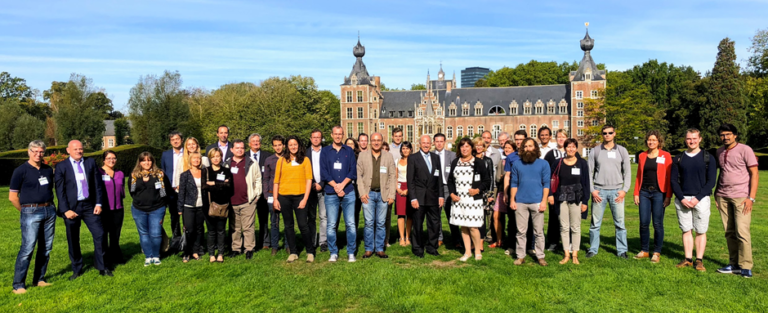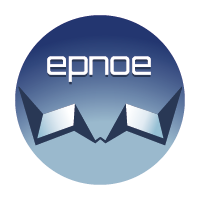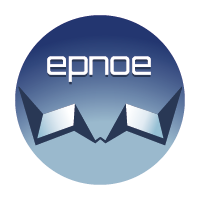
Alès Workshop – October 2018
Alès Workshop
Report on the Workshop “Towards flame retardant biopolymers and biocomposites: current research strategies, scientific barriers and perspective applications” held in Alès (France) on October 16 and 17th 2018

The workshop organized by C2MA IMT-Mines Alès and EPNOE aimed to gather researchers interested in the flame retardancy of biobased materials. About 40 researchers and industrials from 9 countries participated to this two-day event to exchange their ideas and their needs in a friendly atmosphere.
In order to reach sustainable development requirements, not only polymers and reinforcements but also additives, including flame retardants, should move from oil-based to biobased. Biobased resources can offer great opportunities to prepare new flame retardants thanks to their high content in chemical groups that can be functionalized. Moreover, many biobased materials as aliphatic biopolyesters or natural fibers are highly flammable and many applications require them to be flame retarded. Research is nowadays active to meet these challenges.
In the course of the workshop, 18 oral communications focused on recent innovations about the flame retardancy of natural fibres and biocomposites, paper and wood, and the use of various biobased building blocks to prepare efficient flame retardants. A visit of the C2MA facilities focused on the processing of polymers and composites and fire testing was organized and allowed the participants to exchange around their expertise on the different experimental tools.
Overall the event was a great success given the number of participants and the high level of scientific contributions. The organizers would like to thank all the participants that made this event possible.

Leuven Workshop – September 2018
Leuven Workshop
Polysaccharides as Sweet Spot for Innovation, September 17th and 18th, 2018

KU Leuven and EPNOE organized a workshop in Leuven in cooperation with European Institutes of Technology (EIT) of Food and Health with attendance of 50 participants and relevant contributions of industry. The workshop was a unique opportunity to look at current innovation and future trends for polysaccharides in food, health and materials and to learn about numerous initiatives for collaboration within European funding opportunities and initiatives such as EIT Health and EIT Food. The workshop had four sessions and 24 talks. The first session focused on Innovation potential of polysaccharides according to industry and academics and also about opportunities in European calls and EIT activities. The strategy of innovation and technology transfer of KU Leuven and insights about the future of EPNOE were also presented. The second session had focus on Polysaccharides and Food with presentations from Cargill, University of Nottingham, Jan Dlugosz University in Czestochowa, Food and Biobased Research Wageningen and KU Leuven. The first day of the workshop ended with a reception and networking at the hall of the Thermotechnical Institute.
The second day of the workshop started with session of Polysaccharides and Health and had presentations of Dow, UPM Biochemicals, MineParisTech, University of Nottingham, Wageningen University and Research and Maastricht University. The final session was about Polysaccharides and Nanotechnology with presentations from Sappi, VTT, INRA, TITK and University of Innsbruck. The event was a great success and the core message was that Polysaccharides have outstanding opportunities in emerging bioeconomy while its relevance in European call texts is still overlooked. Our community needs to be more active in promoting the potential scientific and technological breakthroughs of Polysaccharides in Food, Health and Materials. Polysaccharides are common denominators for combining chemical engineering, chemistry, material science, bioscience, biotechnology and medicine to create a completely new generation of sustainable products and we have to benefit of this feature.
The local organizers were Pedro Fardim, Paula Moldenaers and Wim Thielemans.
Pedro Fardim

